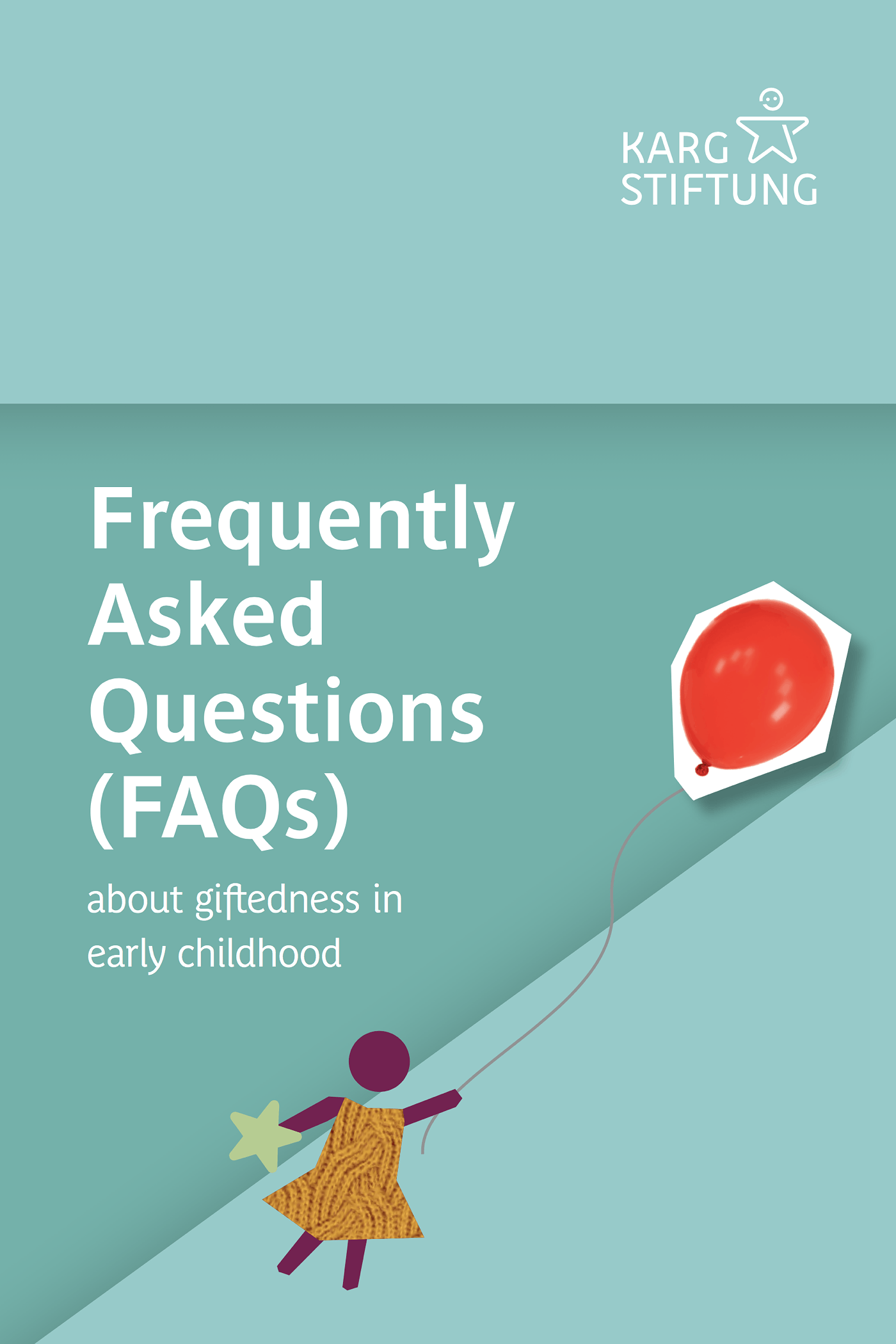Frequently Asked Questions (FAQs) about giftedness in early childhood
What can be done to help young children who put too much pressure on themselves?
Sometimes high-ability children feel that they have to do everything perfectly. When faced with certain types of challenges, they often experience feelings of failure or avoid certain activities from the outset. For these children, finding an appropriate way of dealing with their own demands on their learning and performance behavior is an important developmental task. Initially, it is advisable to communicate with the parents to mutually reflect on any family experiences that may have led to the child’s behavior. The standards children set for themselves are often linked to their family attitudes toward achievement and learning. In cases where a child is struggling due to his or her own self-imposed demands, it is important to support both the parents and the child to help ease these pressures. Both parents and educators can also model constructive ways for children to deal with their own weaknesses or mistakes. In addition, educators can discuss learning processes with the child (e.g., by working together on portfolios) to give him or her a sense of the fact that learning is an ongoing process.
At the same time, it also makes sense to provide children with adequate opportunities in their daily educational routine or at home to participate in activities that allow them to experience themselves as competent, that they enjoy doing, and that encourage their personal development, thereby strengthening their feelings of self-efficacy as well as facilitating the emergence of a positive self-concept. The activities that provide children with these experiences are diverse (e.g., physical activity, creativity, art, music, science, or experiential education).

